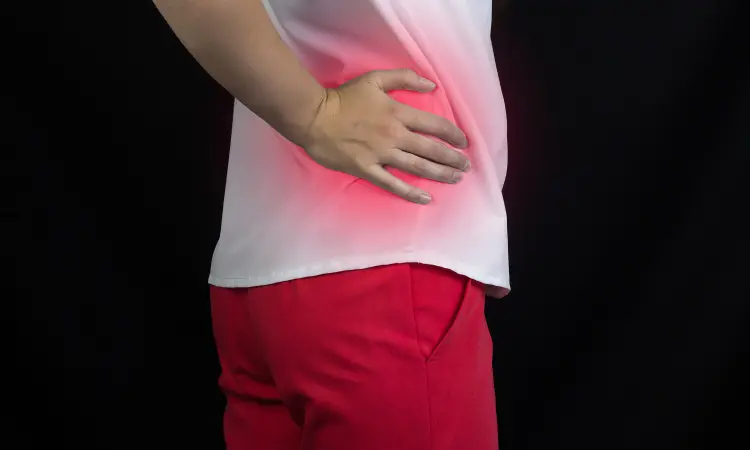- Home
- Medical news & Guidelines
- Anesthesiology
- Cardiology and CTVS
- Critical Care
- Dentistry
- Dermatology
- Diabetes and Endocrinology
- ENT
- Gastroenterology
- Medicine
- Nephrology
- Neurology
- Obstretics-Gynaecology
- Oncology
- Ophthalmology
- Orthopaedics
- Pediatrics-Neonatology
- Psychiatry
- Pulmonology
- Radiology
- Surgery
- Urology
- Laboratory Medicine
- Diet
- Nursing
- Paramedical
- Physiotherapy
- Health news
- Fact Check
- Bone Health Fact Check
- Brain Health Fact Check
- Cancer Related Fact Check
- Child Care Fact Check
- Dental and oral health fact check
- Diabetes and metabolic health fact check
- Diet and Nutrition Fact Check
- Eye and ENT Care Fact Check
- Fitness fact check
- Gut health fact check
- Heart health fact check
- Kidney health fact check
- Medical education fact check
- Men's health fact check
- Respiratory fact check
- Skin and hair care fact check
- Vaccine and Immunization fact check
- Women's health fact check
- AYUSH
- State News
- Andaman and Nicobar Islands
- Andhra Pradesh
- Arunachal Pradesh
- Assam
- Bihar
- Chandigarh
- Chattisgarh
- Dadra and Nagar Haveli
- Daman and Diu
- Delhi
- Goa
- Gujarat
- Haryana
- Himachal Pradesh
- Jammu & Kashmir
- Jharkhand
- Karnataka
- Kerala
- Ladakh
- Lakshadweep
- Madhya Pradesh
- Maharashtra
- Manipur
- Meghalaya
- Mizoram
- Nagaland
- Odisha
- Puducherry
- Punjab
- Rajasthan
- Sikkim
- Tamil Nadu
- Telangana
- Tripura
- Uttar Pradesh
- Uttrakhand
- West Bengal
- Medical Education
- Industry
Blood pressure levels in diabetics tied to kidney function decline: Study

Japan: In diabetes patients, mean systolic blood pressure (SBP) is independently associated with the progression to late-stage kidney disease (LSKD), according to findings from an 11.2-year follow-up study. Kidney function
"The findings may become new evidence that for diabetes patients SBP less than 130 mm Hg is recommended to prevent progression to LSKD," Hirofumi Soejima, Health Care Center, Kumamoto University, Kumamoto, Japan, and colleagues wrote in their study published in Heart and Vessels.
There is not much evidence of how blood pressure over 10 years impacts the decline of the estimated glomerular filtration rate (eGFR) in patients with diabetes. The Japanese primary prevention of atherosclerosis with aspirin for diabetes (JPAD) trial was a multicenter, randomized, clinical trial performed from 2002 to 2008. After the trial completion, the researchers' team followed up with the patients until 2019 as a cohort study.
Late-stage kidney disease was defined as eGFR < 30 ml/min/1.73 m2 or hemodialysis. Based on the mean value of systolic blood pressure (SBP) obtained average 7 times during the follow-up, the patients were divided into three groups: a high SBP group (n = 607, SBP ≥ 140 mm Hg); a moderate SBP group (n = 989, 140 > SBP ≥ 130 mm Hg); or a low SBP group (n = 913, SBP < 130 mm Hg).
Based on the study, the researchers found the following:
- There was no significant difference in the mean eGFR among the high SBP, moderate SBP, and low SBP groups on registration.
- The incidence rate of LSKD was significantly higher in the high SBP (HR 2.02) and moderate SBP (HR 1.54) groups than in the low SBP group.
- Cox proportional hazards model analysis revealed that the high SBP (HR, 1.57) and moderate SBP (HR, 1.52) were independent factors after adjustment for proteinuria ≥ ± , age ≥ 65 years, men, body mass index ≥ 24 kg/m2, duration of diabetes ≥ 7.0 years, statin usage, eGFR ≥ 60 ml/min/1.73 m2, hemoglobin A1c ≥ 7.2%, and smoking status.
The authors concluded, "our 11.2-year follow-up study showed that mean SBP was independently associated with the progression to LSKD in diabetic patients."
"These findings may become new evidence that SBP less than 130 mm Hg is recommended for diabetic patients to prevent progression to LSKD."
Reference:
Soejima, H., Ogawa, H., Morimoto, T. et al. Kidney function deterioration is dependent on blood pressure levels: 11.2 year follow-up in diabetic patients. Heart Vessels (2022). https://doi.org/10.1007/s00380-022-02085-0
Dr Kamal Kant Kohli-MBBS, DTCD- a chest specialist with more than 30 years of practice and a flair for writing clinical articles, Dr Kamal Kant Kohli joined Medical Dialogues as a Chief Editor of Medical News. Besides writing articles, as an editor, he proofreads and verifies all the medical content published on Medical Dialogues including those coming from journals, studies,medical conferences,guidelines etc. Email: drkohli@medicaldialogues.in. Contact no. 011-43720751


